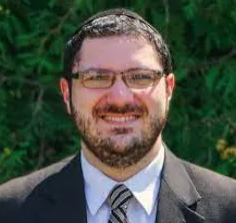By Rabbi Steven Gotlib
Beginning on the second night of Passover and extending until Shavuot, many Jews count the Omer. For 49 days, Judaism maintains a special awareness of time — even for a religion that, as Abraham Joshua Heschel described, constructs a sanctuary of time each week in marking the Sabbath. But what exactly makes these 49 days between Passover and Shavuot so special?
The Zohar, a mystical 13th-century commentary on the Torah, notes on Parshat Yitro that the Exodus from Egypt is referenced 50 times in the Torah. The number 50 takes on great mystical significance, heavily aligned with the concept of “binah” or awareness. In fact, the Zohar notes that there are 50 gates one passes through before reaching true awareness, and each reference to the Exodus from Egypt represents moving through another gate. Once one reaches the final reference, the 50th gate, they are truly ready to leave Egypt and embrace the awareness not only of where they are meant to be but who they are meant to be. The holiday of Shavuot, then, represents stepping through that final gate and coming out on the other side aware of our potential.
The Zohar offers a similar explanation of Shavuot on Parshat Emor. It notes that saving the Jewish people from Egypt was primarily a divine act of Divine compassion, chesed, rather than on the people’s own merit. To be blunt, not all of the Jewish people were deserving of freedom at that time, but God chose to offer salvation to the entire group, making no distinction between those who were ready to be saved and those who were not. However, the giving of the Torah could not be the same type of compassionate act, due to the incredible demands observance made on the people. If the Jewish people were going to accept the Torah, they needed to truly understand and accept what they were getting themselves into. The period between Passover and Shavuot — between the original Exodus and the receiving of the Torah,—provided the Jewish people with time for introspection and growth, so they could make themselves into the type of people who were worthy of being representatives of a divine mission.
Both of these teachings emphasize the human ability to realize where we have gone wrong and improve ourselves. This is, in fact, a fundamental part of what it means to be a human, not just to be a Jew. Rav Chaim of Volozhin noted this in his commentary on Pirkei Avot. He asked why there was a teaching that “the world stands on three things: Torah, Avodah (worship), and Gemilut Chasadim (acts of kindness).” Surely the latter two are things we learn from the Torah, so the Torah is all the world really needs. He responded by pointing out that there were, in fact, examples of worship and acts of kindness spoken about in the Torah before the physical Torah was given to the Jewish people. In fact, the ability to do kindness to others and intuitively reach out to the divine were prerequisites for receiving the Torah. What the Torah provides is a framework in which to utilize our natural predisposition toward kindness and worship in a direct, healthy, and productive way.
In conclusion, then, Shavuot is the holiday of ultimate awareness. It is both the culmination of a period of introspection and the beginning of a new part of our journeys. We each have an opportunity to reassess who we want to be and where we want to go in our relationship with our God, our people, and ourselves. May we all experience a Shavuot full of learning, introspection, and spiritual growth. Chag Sameach!

Rabbi Steven Gotlib is the incoming director of the Glebe Shul in Ottawa, Canada. He currently serves as Assistant Rabbi at the Village Shul and a Community Scholar at Beit Midrash Zichron Dov of Toronto. A graduate of Rutgers University, Rabbi Gotlib received rabbinic training from Rabbi Isaac Elchanan Theological Seminary at Yeshiva University and a Certificate in Mental Health Counseling from the Ferkauf School of Psychology in partnership with RIETS.

